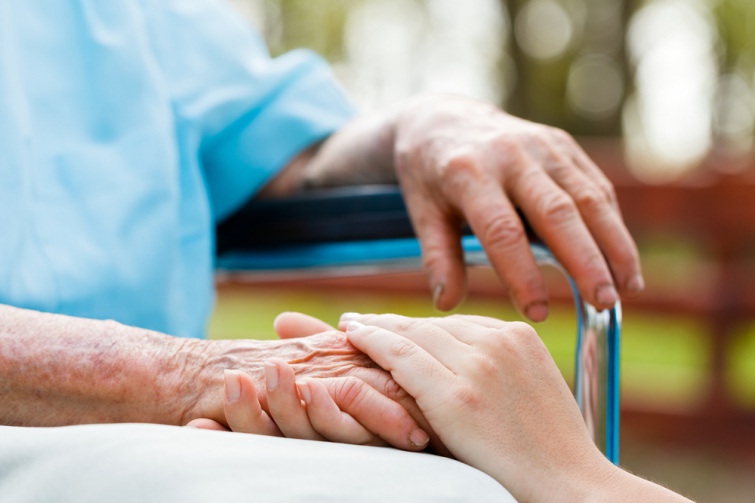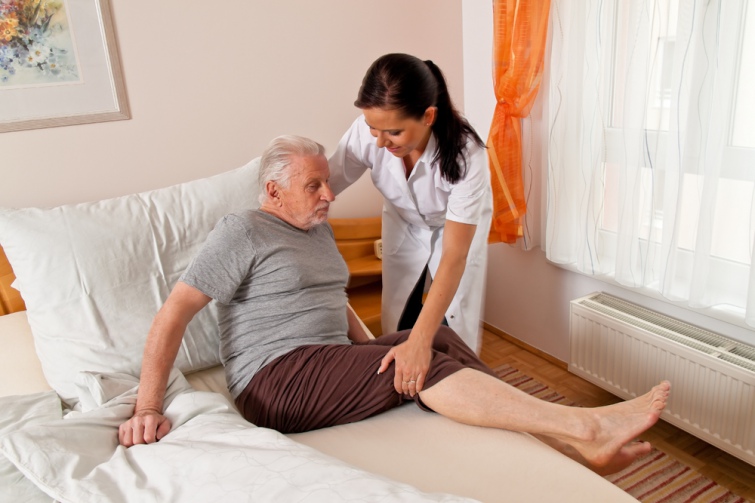At the end of March 2017, deputies voted in the first reading for a bill on social services, which, if adopted, will directly affect the lives of people in difficult living conditions.
Help during unemployment, loss of relatives, inability to take care of yourself due to severe illness or disability ...
This is social services - a complex of activities provided to a person who has fallen into difficult living conditions and can not overcome them on their own.
At the end of March 2017, deputies voted in the first reading for a bill on social services, which, if adopted, will directly affect the lives of people in difficult living conditions.
In recent years, the practice of providing social services has begun to demand the improvement of the existing legislative framework.
In particular, it is about introduction of social order, change of the financing system, provision of social assistance in the united territorial communities, improvement of contractual relations between providers and recipients of services and many other issues.
All these issues need to be resolved in the new law.
The proposed bill, above all, has a "systematizing" character - from identification of providers and recipientssocial services to the order of their provision, monitoring and quality control.
Most norms are prescribed more clearly than in the previous act. At the same time, problem areas remain. Consider them.
GUARANTEES TO PROVIDE SOFTWARE.
Providing social services begins with identifying everyone who needs them - people with disabilities and those who have lost their motor activity, have incurable illnesses, mental disorders, and several other categories.
All those who have been identified need to be logged in to the appropriate registry, identifying the list of services to be provided to each individual.
In total there are about 60 types of social services, including cleaning, feeding, bathing, assistance in moving up to writing letters.
Obviously, the function of identifying and conducting a kind of "certification" should be highlighted in the legislative mechanism of service provision as one of the main.
Unfortunately, the draft new law does not define a specific entity as the sole responsible for accounting for all recipients of social services.
The task of determining the needs of the population is raised immediately before the three instances - local authorities (rayon state administrations), local self-government bodies (communities) and social service providers.
And here, "the more" nannies ", the bigger problems with the" eye ", that is, without a single responsible person will be difficult to achieve quality results in this area.
With regard to district administrations in charge of social protection management, it is unlikely that this function will be efficiently assigned to a district official, as this requires constant visits to places of residence, in particular residential areas and remote villages.
It would be more logical to entrust inspection and monitoring areas, work with citizens' complaints.
With regard to service providers, among whom there is, and will continue to grow, the share of private institutions, it is doubtful that they will be interested in identifying all those in need.
In each community there is a post of specialist in social work, which after the entry into force of the law on service in local self-government bodies, will receive a status, and the level of responsibility is identical to civil servants.
SOFTWARE AND MEDICAL SERVICE
The bill does not contain norms regulating the provision of social services in medical institutions.
The bill generally does not track the connection between the social and medical spheres.
At the same time, world practice suggests the functioning of such types of institutions as socio-medical or medical-social centers, which combines the provision of medical and social services. These are the so-called centers of nursing and social care hospitals.
The bill should define the legal framework for the optimal combination of medical and social assistance, the functioning and creation of social and medical facilities.
This is especially important in view of the fact that, according to Ukrainian legislation, only health care institutions with the necessary licenses and accreditation can provide health care.
Thus, institutions of the social sphere are actually deprived of the opportunity to provide even elementary medical care - to make vaccinations, massages, to put drops, not to mention surgical intervention and the appointment of drugs.
The law should help to optimally combine these very similar types of care.




